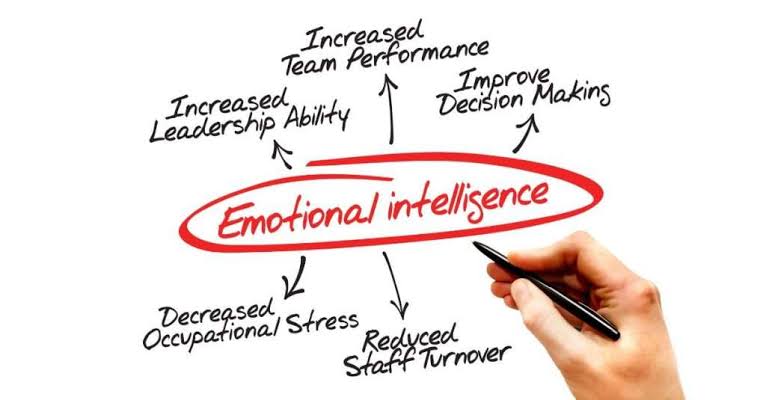In the modern world, emotional intelligence (EQ) has become just as important as technical knowledge and intellectual ability. Emotional intelligence refers to the ability to recognize, understand, and manage one’s own emotions while also being able to empathize with and influence the emotions of others. As workplaces and personal relationships grow more complex, EQ has emerged as a critical skill that can determine success both professionally and personally.
Training in emotional intelligence helps individuals develop self-awareness, empathy, and strong interpersonal skills, enabling them to handle stress, resolve conflicts, and build healthy relationships. In 2025, where hybrid workplaces, multicultural teams, and digital communication dominate, EQ training has become an essential tool for fostering collaboration, leadership, and overall well-being.
Understanding Emotional Intelligence
Emotional intelligence is composed of several core components, including self-awareness, self-regulation, motivation, empathy, and social skills. Each of these elements plays a vital role in how we navigate our emotions and interact with others. For example, self-awareness allows a person to recognize their emotional triggers, while empathy helps them understand and connect with the feelings of those around them.
Research has shown that people with high EQ often excel in leadership, teamwork, and problem-solving. They are better at managing stress and adapting to change, making emotional intelligence a valuable trait in both professional and personal environments. This understanding has led to a growing demand for structured emotional intelligence training programs across industries.
Why Emotional Intelligence Training is Essential
Unlike IQ, which is largely fixed, emotional intelligence can be developed and strengthened through consistent practice and training. EQ training teaches individuals how to respond to situations thoughtfully rather than react impulsively. It also provides techniques for managing emotions, improving communication, and fostering positive interactions.
In workplaces, emotional intelligence training helps employees build stronger relationships with colleagues and clients. It improves collaboration, reduces conflicts, and increases overall productivity. Organizations that invest in EQ training often see improvements in leadership quality, employee morale, and retention rates.
The Role of EQ in Leadership
Strong leaders are not just those with technical expertise or strategic vision but those who can inspire and connect with their teams on an emotional level. Leaders with high emotional intelligence are better equipped to motivate employees, handle difficult conversations, and create an inclusive and supportive work environment.
EQ training helps leaders develop critical skills such as active listening, empathy, and emotional regulation. These skills are crucial for maintaining trust, resolving conflicts, and ensuring that team members feel valued and understood. In 2025, companies increasingly prioritize leaders with emotional intelligence as they drive both employee engagement and organizational success.
Emotional Intelligence and Workplace Culture
Workplace culture is heavily influenced by how individuals interact with one another. A lack of emotional intelligence can lead to misunderstandings, miscommunication, and unnecessary tension. By incorporating EQ training, organizations create a culture of understanding, respect, and collaboration.
Employees who have undergone EQ training tend to communicate more effectively and work better in teams. They are also more adept at handling workplace stress and navigating challenges, which contributes to a healthier and more productive work environment.
The Connection Between EQ and Mental Health
Emotional intelligence is closely linked to mental and emotional well-being. People who can recognize and manage their emotions are less likely to be overwhelmed by stress, anxiety, or anger. EQ training teaches techniques such as emotional regulation, positive thinking, and mindfulness, all of which contribute to better mental health.
By developing emotional resilience through EQ training, individuals are better prepared to handle setbacks, maintain balance, and avoid burnout. This is particularly important in today’s high-pressure world, where mental health challenges are becoming increasingly common.
Practical Elements of Emotional Intelligence Training
Emotional intelligence training programs often include activities and exercises designed to enhance self-awareness and interpersonal skills. Some practical elements include:
- Self-reflection exercises to help individuals identify their strengths, weaknesses, and emotional triggers.
- Role-playing scenarios to practice empathy, active listening, and effective communication.
- Stress management techniques such as breathing exercises, meditation, or mindfulness practices.
- Feedback sessions where participants learn how to give and receive constructive criticism.
- Group discussions that promote collaboration and emotional understanding among team members.
These practical tools ensure that EQ training is not only theoretical but also actionable in real-life situations.
Benefits of Emotional Intelligence Training
The benefits of emotional intelligence training extend beyond professional settings. Individuals who develop EQ skills often experience stronger personal relationships, better conflict resolution, and improved overall life satisfaction.
For organizations, EQ training leads to higher employee engagement, increased productivity, and stronger leadership pipelines. Companies that prioritize emotional intelligence often find that their teams are more adaptable, creative, and capable of handling change.
Conclusion
Emotional intelligence training is no longer an optional skill development program but a necessity in today’s world. It equips individuals with the tools needed to manage their emotions, communicate effectively, and build strong, meaningful connections with others.
As workplaces evolve and life becomes increasingly interconnected, emotional intelligence will continue to play a central role in personal and professional success. Investing time and resources into EQ training not only improves individual performance but also fosters healthier relationships and more resilient organizations.




Very nice